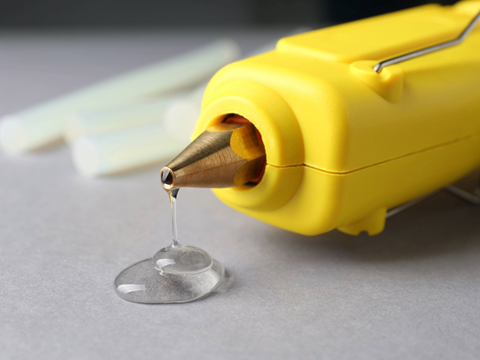
Henkel is working with Dow to produce its hot melt adhesive using low-carbon feedstocks and renewable electricity, aspiring to reduce the carbon footprints of its product lines by 20-40%.
This move marks the first step in a broader strategic partnership to drive the decarbonization of adhesive manufacturing processes across technologies. It is hoped to help Henkel reduce its hot melt portfolio’s carbon emissions in line with SBTi, making use of Dow’s innovations in materials science.
Apparently, the initial implementation of these projects has already improved the emission profiles of selected hot melt adhesive technologies. The companies are initially focusing on materials supplied to Henkel in Europe, but they aim to expand to North America in the future.
Henkel aims to align with its climate commitments, which include reducing Scope 3 emissions by 30% by 2030, then by 90% by 2045. In turn, the initiative is expected to support Dow’s decarbonization and growth strategies.
“Our collaboration reflects Henkel’s ambition to drive meaningful change in industrial sustainability,” said Jenna Koenneke, sustainability director at Henkel Adhesive Technologies. “By integrating low-carbon materials and process-emission reduction levers like renewable electricity, we continue to set a precedent for how value chain partnerships can accelerate sustainability.”
“This collaboration demonstrates the demand for low carbon products in the market and the ambition to increase the investments needed to help the industry and value chain reach their net zero goals,” added Peter Sandkuehler, senior business sustainability director at Dow. “We are proud to continue on this journey with Henkel.”
Henkel and Dow will host a joint Transformation Talk, “Success Story: Reducing product carbon footprint in practice”, at K 2025 in Düsseldorf; it will explore the value of collaboration in scaling climate solutions. Visitors can attend the talk at 14:00 CET on 9th October in Dow building 04.1 outside Hall 4.
The development comes after Henkel announced in May that it would incorporate Synthomer’s CLIMA resins into its TECHNOMELT hot melt adhesive portfolio; this development is anticipated to lower carbon emissions by at least 20% while maintaining product quality.
Henkel is also a finalist in the Commercialized E-Commerce category of this year’s Sustainability Awards for its bio-based hot melt adhesive, designed to reduce CO2 emissions and waste in e-commerce packaging.
In other news, Dow has joined forces with Candiani to manufacture premium cream jars from its SURLYN PC 2000 REN ionomer, sourced from used cooking oil. The development is intended to reduce carbon emissions and will also be showcased in the Dow building at K 2025.
If you liked this story, you might also enjoy:
The ultimate guide to the Packaging and Packaging Waste Regulation in 2025
How are the top brands progressing on packaging sustainability?
Everything you need to know about global packaging sustainability regulation in 2025
The key to increasing the use of reusable packaging in supermarkets














No comments yet